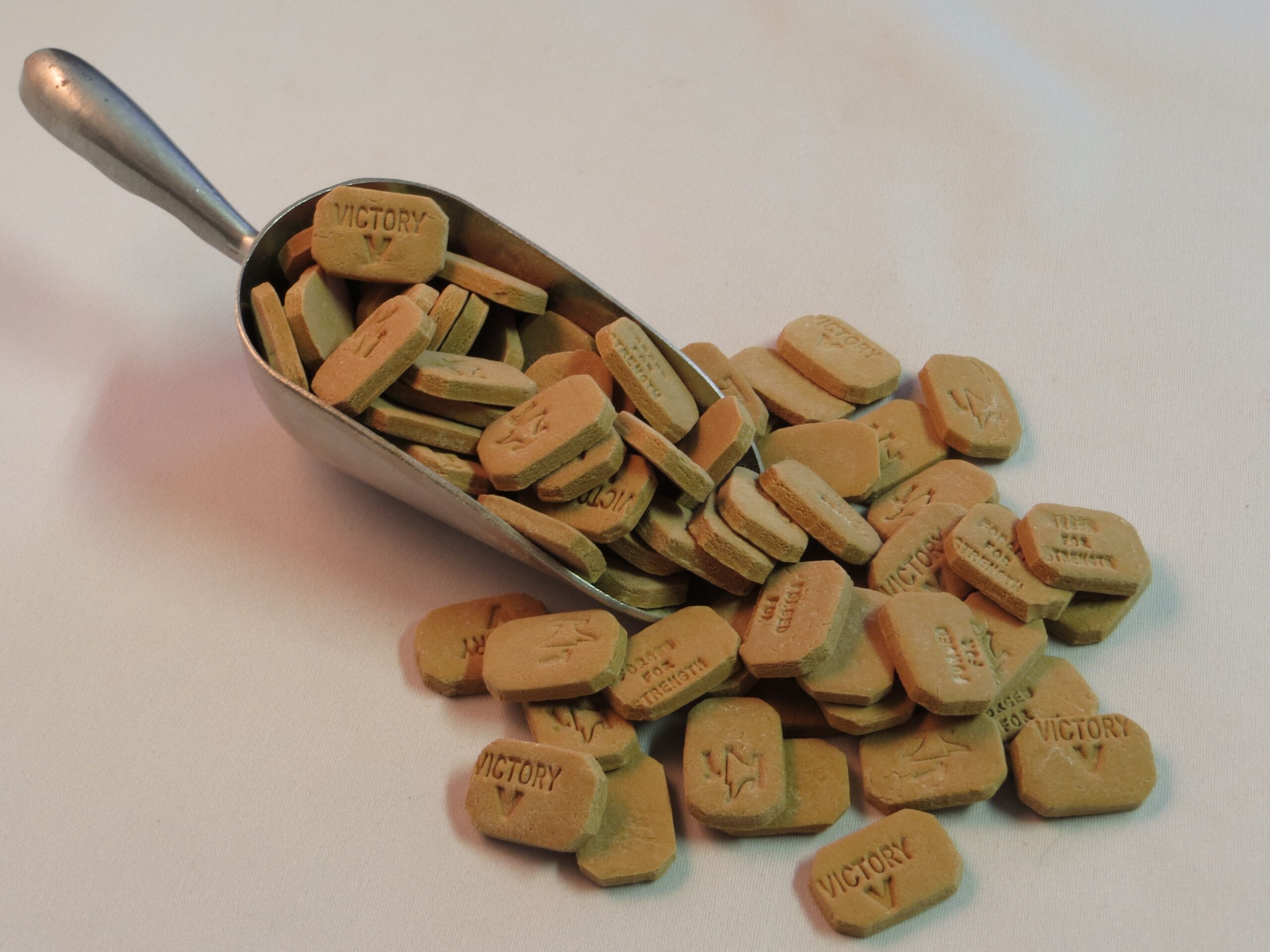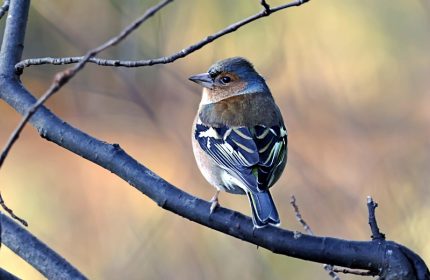Lozenges and pastilles for sore throats and coughs – Sweets or medicine?
Coughs and colds abound at this time of year with lots of us buying over-the-counter remedies at chemists and pharmacies but what of the old-fashioned lozenges that we used to buy as children from the local sweet shop?
Victory V
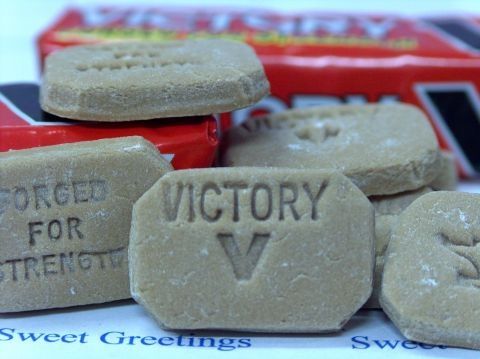 Originally manufactured in Nelson, Lancashire in 1864 and indirectly inspired by Admiral Nelson’s famous ship, Victory V lozenges were the brainchild of Thomas Fryer and Edward Smith.
Originally manufactured in Nelson, Lancashire in 1864 and indirectly inspired by Admiral Nelson’s famous ship, Victory V lozenges were the brainchild of Thomas Fryer and Edward Smith.
Each lozenge was initially made by hand to ensure the correct dosage of therapeutic ingredients which included liquorice, ether and chlorodyne (a mixture of opium, cannabis, alcohol and chloroform!). The distinctive brown rectangular shaped lozenges were very popular, especially with school children who couldn’t get enough of them!
Victory V’s are still manufactured today but they sadly lost their global appeal when the more vigorous ingredients were dropped.
Fisherman’s Friend
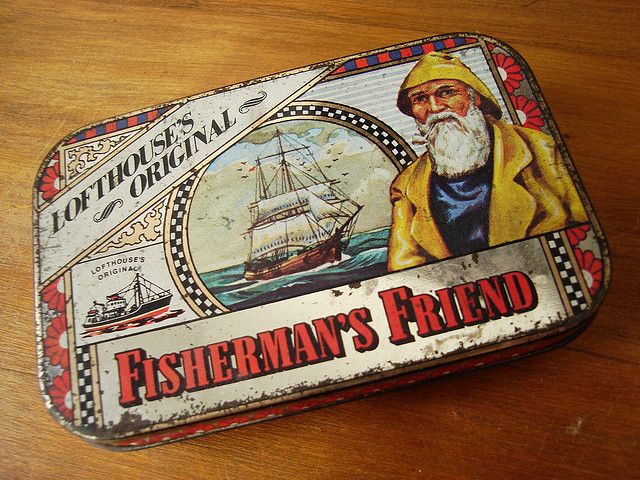 Originally developed in 1865 as a menthol and eucalyptus liquid for the fishermen of Fleetwood by pharmacist James Lofthouse the liquid was soon made into a lozenge which was easier for fisherman to take with them into the North Atlantic.
Originally developed in 1865 as a menthol and eucalyptus liquid for the fishermen of Fleetwood by pharmacist James Lofthouse the liquid was soon made into a lozenge which was easier for fisherman to take with them into the North Atlantic.
Fisherman’s Friends were made popular by holidaymakers who visited the area during the late 1960s and by the early 1970s the Lofthouse family had increased production and started exporting overseas.
A new aniseed flavour was introduced in 1977 and by 1979 the Fisherman’s Friend had become the first to produce a sugar free mint.
Fisherman’s Friend is still a family business and they currently produce over 5 billion lozenges a year.
Barnips and Lun Jeelers
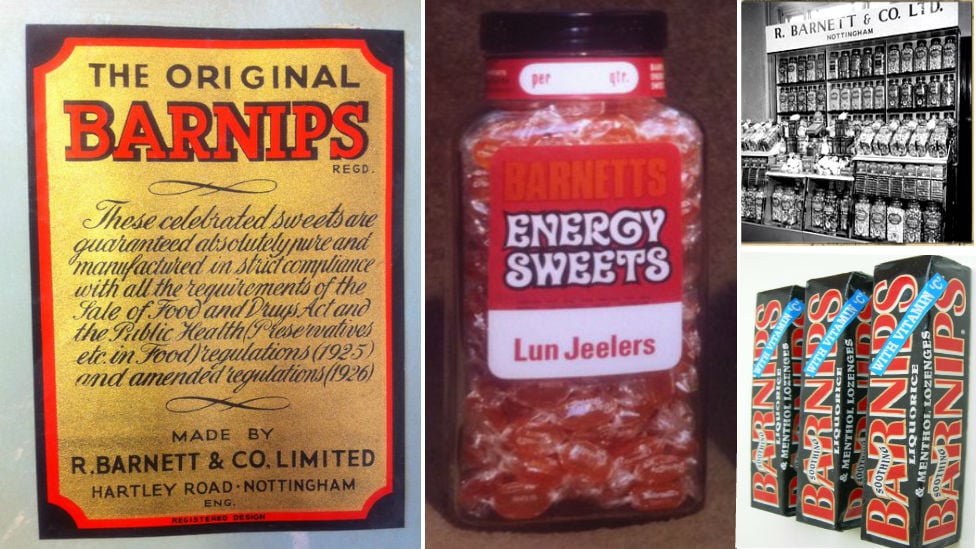 Barnett’s, the family run Nottingham sweet manufacturer, have been producing their Winter Nips – or Barnips – since 1896. Still made in traditional copper pans Nips are menthol lozenges which were particularly popular with workers in the iron foundries and mining industry, back in the day.
Barnett’s, the family run Nottingham sweet manufacturer, have been producing their Winter Nips – or Barnips – since 1896. Still made in traditional copper pans Nips are menthol lozenges which were particularly popular with workers in the iron foundries and mining industry, back in the day.
Lung Healers, subsequently known as Lun Jeelers were also made by Barnett’s and were originally sold as cough sweets.
Proctor’s Pinelyptus Pastilles
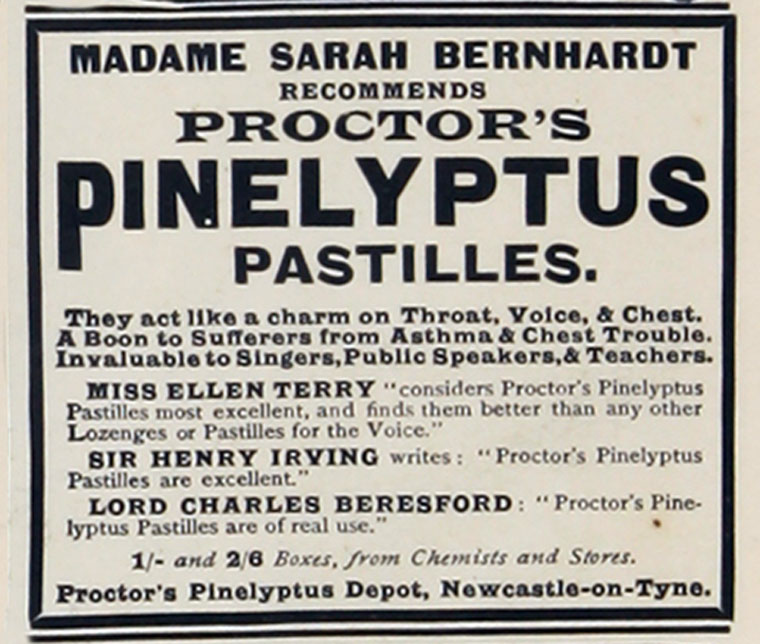 Dating back to Newcastle in around 1890, these pastilles were favourites with famous actors, singers and public speakers as they were reported to clear the airways and “give tone and strength to the voice.”
Dating back to Newcastle in around 1890, these pastilles were favourites with famous actors, singers and public speakers as they were reported to clear the airways and “give tone and strength to the voice.”
A 1908 advert claims: “They are of immense service to Speakers, Singers, Teachers, Travellers, and all who have much talking to do.”
Currently made by pharmaceutical company Ernest Jackson at its factory in Crediton, Devon, the pastille contains eucalyptus oil and menthol.
Coltsfoot Rock
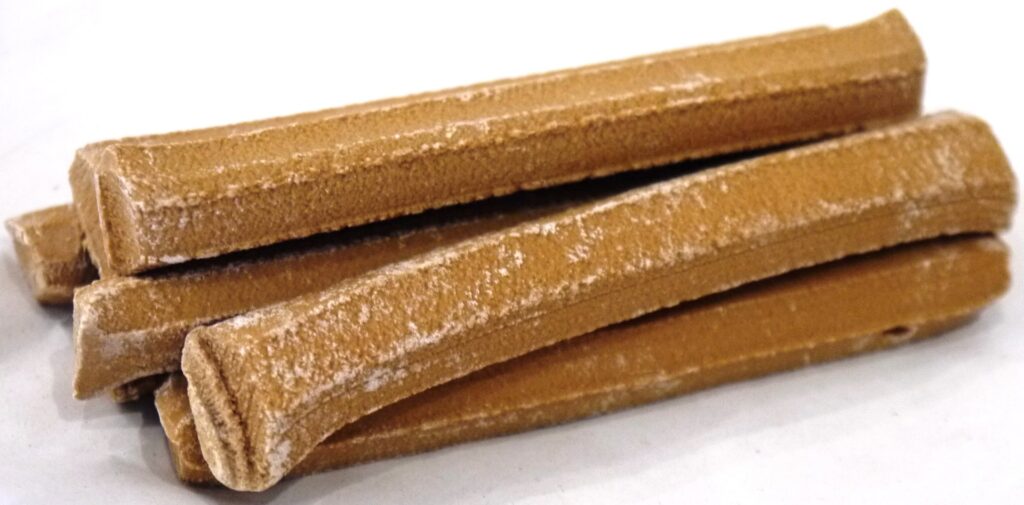 Coltsfoot Rock is a hardened stick of brittle rock flavoured with Coltsfoot, a plant with leaves shaped like hooves. The sole producers are Stockley’s Sweets based in Lancashire and they have been making Coltsfoot Rock for over 100 years.
Coltsfoot Rock is a hardened stick of brittle rock flavoured with Coltsfoot, a plant with leaves shaped like hooves. The sole producers are Stockley’s Sweets based in Lancashire and they have been making Coltsfoot Rock for over 100 years.
The leaves were originally dried and smoked and were thought to have helped relieve asthma and soothe coughs. The sweet is still popular with children today.
Did you take any of these as a child to help relieve cold-like symptoms? Or did you just enjoy them as sweets?
Melina - Assistant Editor
Latest posts by Melina - Assistant Editor (see all)
- By yourself at Christmas this year? Tips on how to manage alone - December 16, 2024
- The Silversurfers, just for fun, Christmas Quiz! - December 14, 2024
- 10 potential hazards for pets at Christmas - December 10, 2024
- Christmas Spiced Blueberry Panettones - December 1, 2024
- Three must have toys of the late 60’s - November 24, 2024








